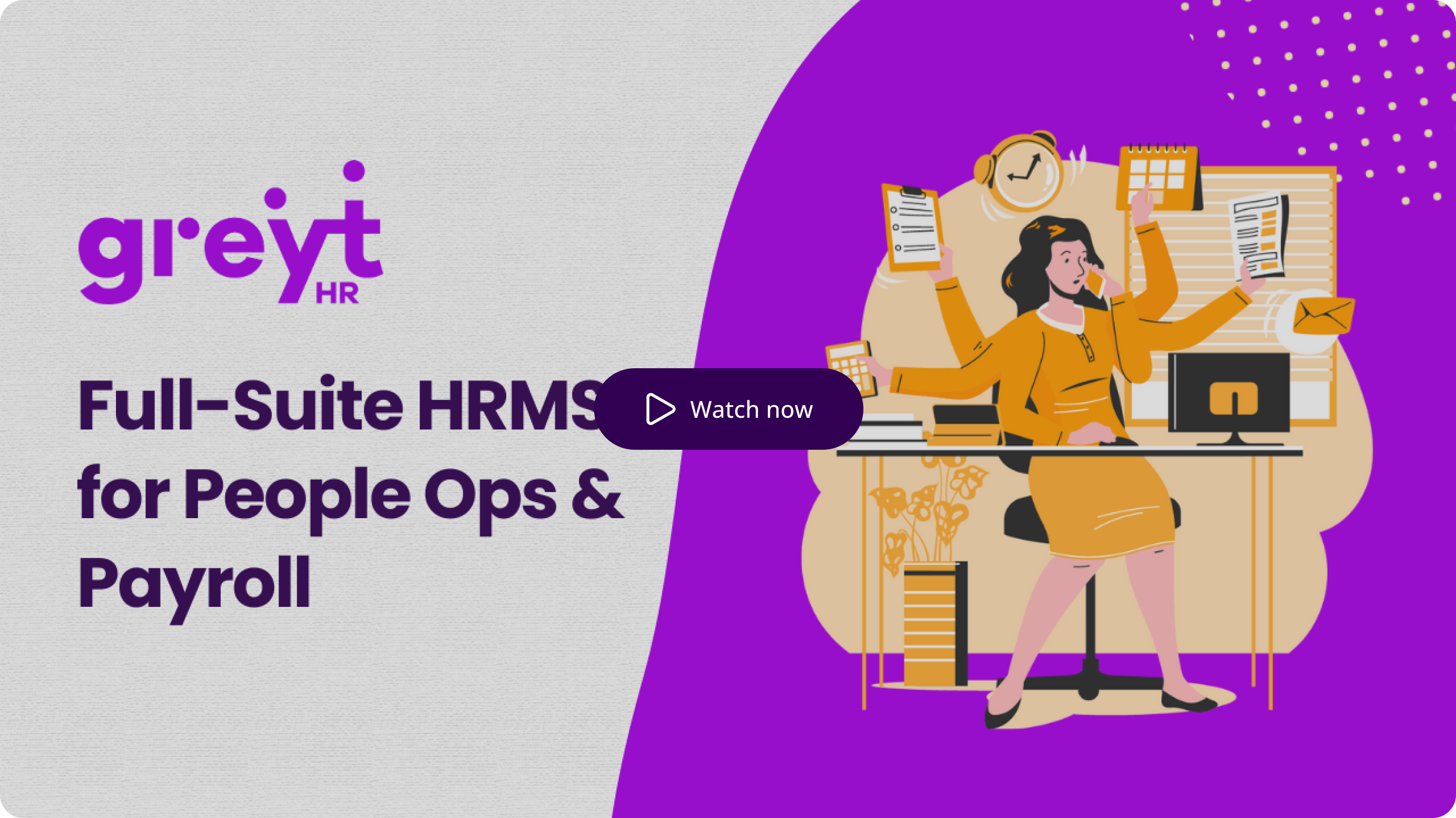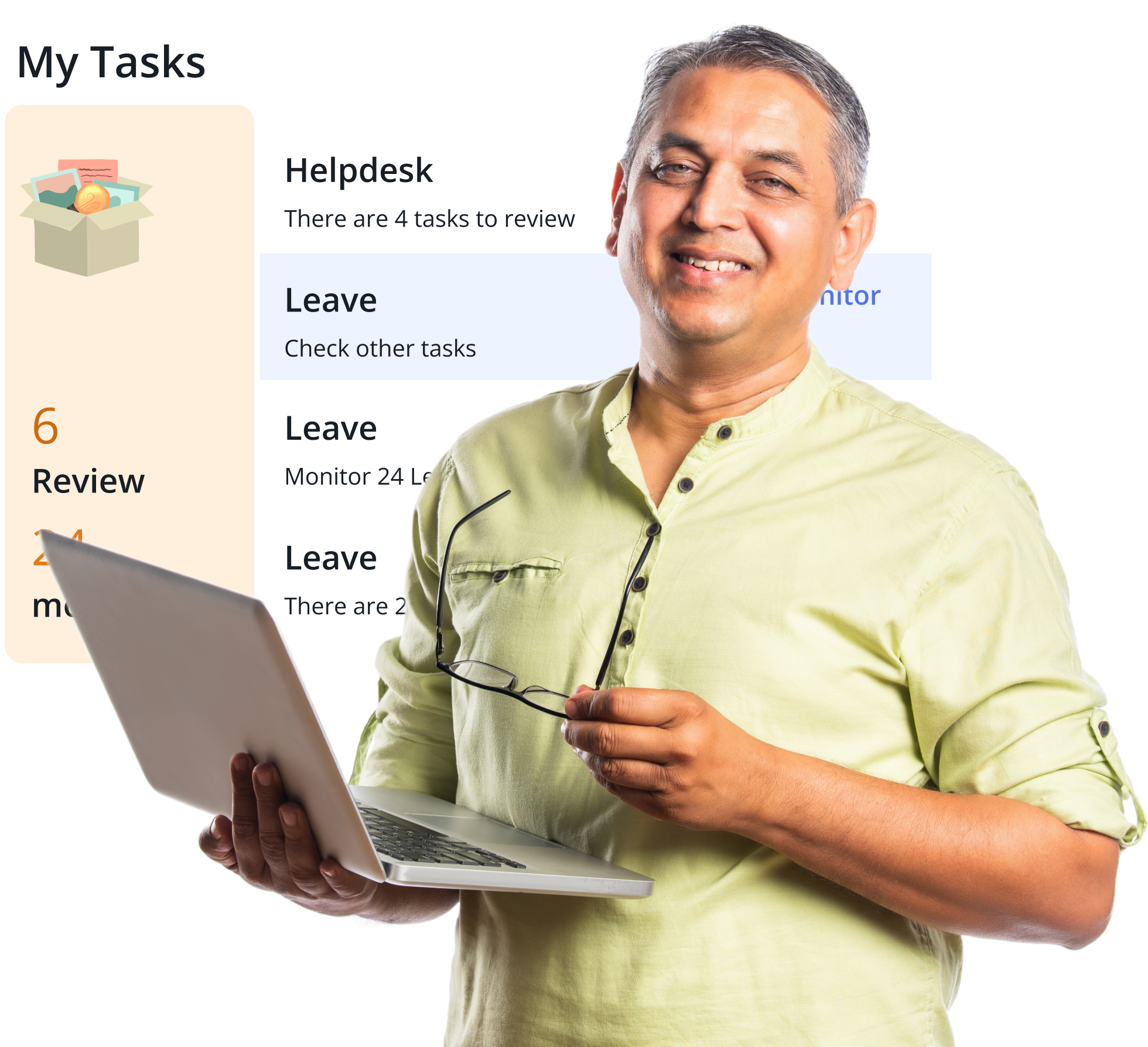Welcome to the greyt side.
The most trusted full-suite HRMS for your people operations

25+
Countries
30,000+
Companies
3 million+
Users
Modern HR and Payroll are Complex
greytHR solves some of the most common HR and Payroll issues that slow down your business.You don’t have an HRMS, and running HR ops on Sheets
Your payroll solution is unstable, requires hours of manual work
Most HR and payroll tasks are manual, clerical, and take hours to complete
You’re still using old ways to capture and track leaves and attendance
Your employees need a self-serving portal (ESS), ON MOBILE!
Everyone gets value from day 1
A platform loved by everyone in your company - by employers and employees

CIO

CHRO

Payroll Admin

Managers

Employees
Without greytHR
- Data security concerns and system compatibility issues.
- Low user adoption rates.
- No guided implementation.
With greytHR
No compliance nightmares! greytHR’s own implementation team works with your IT, to ensure seamless implementation and integration of HR tech, with the assurance of data security and scalability.

Without greytHR
- Data security concerns and system compatibility issues.
- Low user adoption rates.
- No guided implementation.
With greytHR
No compliance nightmares! greytHR’s own implementation team works with your IT, to ensure seamless implementation and integration of HR tech, with the assurance of data security and scalability.

The Customers have spoken
Depth of our features, ease of implementation and adoption, devoted after sales and support, cost-effectiveness - just a few things our 30000+ customers love about us


greytHR is our go-to software...
...for streamlined HR processes, including Employee Information Management, Payroll, Leave Management, Attendance Management, Onboarding, HR Help Desk, Letters, Tasks & Checklists, Offboarding/Exit Workflow, and Payroll Compliance. Among them, Payroll and Tasks & Checklists are our top choices due to their user- friendly interface and the expertise of the greytHR team.






Get full access to the greytHR Ecosystem
greytHR users are backed by our strong community, led by industry thought leaders and practitioners
greytHR Academy
Only academy offering courses for HR & Payroll in India

greytribe Community
Membership to nationwide online HR community

greytHR Resource Library
Blogs, guides & templates for all things HR

HR Compliances Wiki
Ready reckoner for HR professionals

greytFM Podcasts
Podcasts by HR experts on trending HR topics

Parichay Webinars
Expert webinars on trending HR and compliance topics
